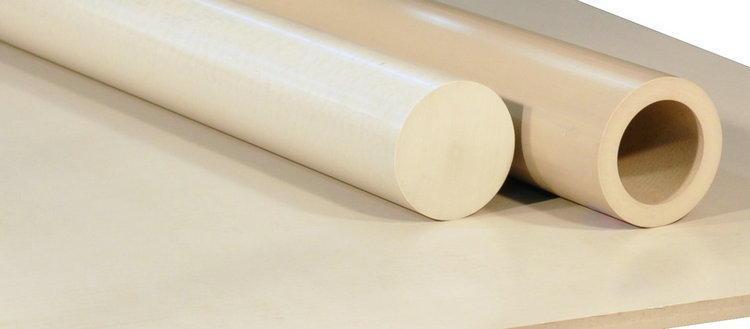As The Global "Fluorine Limitation" Era Approaches, ARKPEEK Is Taking Action.

In November 2023, ARK sent ARKPEEK-1000 sheets to SGS Standard Technical Services Co., Ltd. for testing the content of perfluorooctanoic acid (PFOA) and its salts, perfluorooctanoic acid-related substances, and perfluorooctane sulfonic acid (PFOS) and its derivatives.
The test results were non-detectable, complying with regulatory requirements.
ARKPEEK-1000 complies with EU POPs Regulation (EU) 2019/1021 and its amending Regulation (EU) 2020/784, with the content of PFOA and its salts in substances, mixtures, or articles ≤0.025mg/kg, the sum of individual or total PFOA-related substances in substances, mixtures, or articles ≤1mg/kg, the content of PFOS and its derivatives in substances/preparations ≤10ppm, and the requirement of PFOS and its derivatives in articles <1000ppm.
Why is the world limiting fluorine?
PFAS is a toxic substance, and once applied, it exists indefinitely!
What is PFAS?
The PFAS family has a vast number of members, consisting of nearly five thousand synthetic chemicals, including perfluoroalkyl acids (PFAAs), perfluoroalkyl carboxylic acids/perfluoroalkyl carboxylate salts (PFCAs), perfluoroalkyl sulfonic acids/perfluoroalkyl sulfonates (PFSAs), perfluoroalkyl sulfonylamides (FASAs), etc. Currently, the most concerning perfluorooctanoic acid (PFOA) and perfluorooctane sulfonic acid salts (PFOS) belong respectively to PFAAs and PFSAs.
According to the Organization for Economic Co-operation and Development (OECD) definition: PFAS, also known as "perfluoro and polyfluoroalkyl substances," refers to substances containing at least one perfluorinated methyl (CF3-) or methylene (-CF2-) carbon atom (excluding any H/CI/Br/I).
Since the 1940s and 1950s, PFAS has been widely used in various electronic products and their raw materials, such as cables, printed circuit boards (PCBs), semiconductors, various electronic components, non-stick coatings, etc.
Currently, countries, organizations, and companies worldwide have successively enacted relevant regulations on "Persistent Organic Pollutants" under the Stockholm Convention, strictly limiting the addition of PFAS compounds and gradually phasing out the production and use of PFAS.
Hazards of PFAS
PFAS, due to its super stable carbon-fluorine bond (C-F bond), does not decompose in the natural environment and is also known as "permanent chemicals."
For the Environment
PFAS is persistent and can migrate long distances, staying indefinitely in water and soil.
For Humans
As a typical endocrine disruptor, the toxicity of PFAS is self-evident, and even a tiny exposure may bring health risks. Once entered into the body, due to its bioaccumulative nature, it will be deposited in various organs such as the liver, kidneys, etc., unable to be excreted, increasing the risk of thyroid disease, kidney disease, chronic liver disease, and cancer in humans.
Fluorine plastics are high-performance engineering plastics with excellent corrosion resistance, high-temperature resistance, wear resistance, insulation, etc., widely used in chemical, electronic, aerospace, medical, and other fields.
With the continuous tightening of fluorine restrictions in Europe, many internationally renowned companies have started to develop alternatives to fluorine plastics. How can Chinese fluorine plastic companies break through?
PEEK Polyether Ether Ketone
The replacement of fluorine plastics is inevitable. Compared with fluorine plastics, PEEK has higher mechanical strength, wear resistance, and good dimensional stability. It is one of the best choices to replace fluorine plastics. It is safe and healthy. It is entirely feasible to partially replace fluorine plastics with PEEK in some application scenarios. It has a longer service life and higher reliability, such as: fluorine plastic insulated sleeves, sealing gaskets, special wire and cable, fluid delivery pipes, coatings, and fiber-woven filter screens.
In terms of economy, with the reduction of domestic PEEK costs, PEEK is no longer a material with a high price, and compared with PTFE and other fluorine plastics, PEEK has lower density, longer service life, and relatively lower use cost. Partial replacement of PTFE and other fluorine plastics with PEEK is becoming more and more common.
PEEK Full Industry Chain
ARK continues to explore the forefront of the application of polymer resins, forming a complete industry chain of PEEK from resin polymerization, profile production to part processing. Controlling from the source, avoiding pollution from various links of PFAS, this test proves that ARKPEEK-1000 fully complies with European import standards, and the doubts of further cooperation with customers can be dispelled.
At the same time, it also dispels the rumor of "since PEEK synthesis process will use fluoroketone, then the final PEEK resin and products will also contain PFOA or PFOS." ARKPEEK has completely withstood the test.
Service Technology Advantages
ARK closely monitors market dynamics and always adheres to the principle of customer first. Focusing on the production, sales, and application development of high-molecular materials such as PEEK, equipped with provincial-level engineering technology research centers, provincial-level industrial design centers, and national-level JRITI-ARK joint innovation centers. Over the years, we have maintained close cooperation with domestic and foreign fluorine plastic companies, cooperated with customers to achieve the development and optimization of PEEK products.
With 16 years of expertise in the PEEK field, ARK will cooperate with you in product structure design, sampling, and testing, reducing development costs and shortening product development and listing cycles!